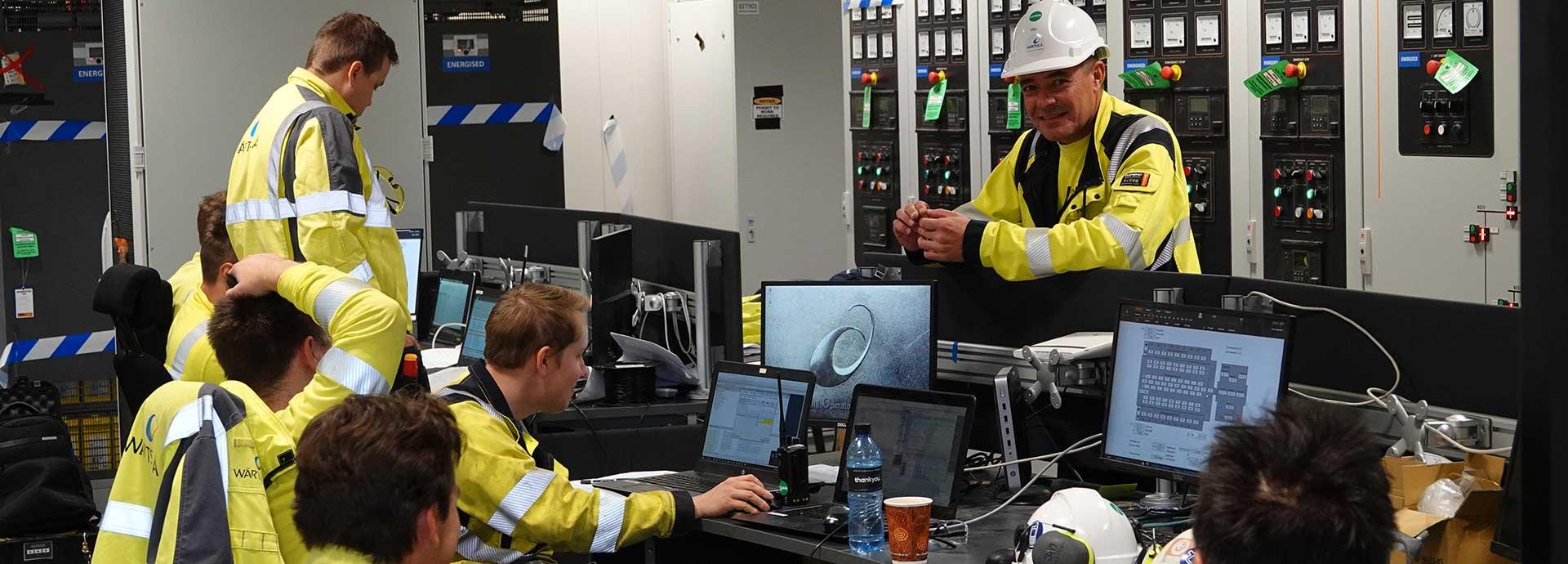

When the Barker Inlet Power Station (BIPS) broke ground for a 210 MW power plant project in Adelaide, Australia, in September 2018, over 11,720 steel bars were left protruding above the ground as part of its construction. If they were left unprotected, each of these sharp bars represented a potential safety hazard.
Two options were possible in securing the site - either by capping each of the steel bars, or, in an idea that the workers came up with, by putting simple, plastic rubbish bins over the tops of the bars. The latter proved to be a faster solution with the added benefit that they could be quickly moved around the site and reused to cover other such protuberances.
“This idea came from the workers, and we actioned it directly,” remembers John Magro, the Wärtsilä site Health and Safety Environment Manager. “We haven’t had any incident involving the steel bars,” he adds.
As a result of this and other safety initiatives, as of 15 September 2019, the Barker Inlet Power Station project has reached the threshold of one million working hours without a single Lost-Time-Incident (LTI). This is an exceptional achievement both for Wärtsilä, where the average is 2,8 lost time incidents per one million working hours, and for AGL Energy, Wärtsilä customer, with the Barker Inlet project being the best performing project, in safety-related statistics, in their portfolio.
Proactive approach and clear goals
“Not only is the project Lost-Time-Incident free but we also have not had serious near misses - and that is unique,'' says AGL Health and Safety Environment Manager Sean Gardner. In fact, the only recordable accident that happened on the site was a cut thumb that required four stitches. The injured person was able to return to work the next day with minimal interruption to his work schedule.
While such good results in safety can be credited to high customer and legislative requirements present in the Australian construction sector, they are also a result of a very fruitful collaboration between Wärtsilä, its customer AGL Energy and subcontracting company Primero. Everyone involved agrees there was a “genuine one team” culture prevailing on site. “We set clear expectations on what we needed to achieve, we have had very good visible leadership, we have a standard approach to combatting errors and we communicated that well to everyone on-site,” says Magro.
With the site working 24 hours per day, seven days a week, workers are reminded to stay safe at all times. Safety issues of the previous day and upcoming work challenges are discussed every morning when planning work activities for the day.
The focus is on proactively tackling safety issues. One approach was for employees to fill in a job hazard observation card, before starting a shift or during breaks. Over one million five hundred thousand of these “in field risk assessments” have been compiled and reported ever since construction on the site began.
“We wanted to empower everybody on the site to have the ownership of their workplace. When something doesn’t seem correct, people can stop working, until all the necessary safety mechanisms are put in place and the area is secured,” explains Magro.
Leading by example
While pro-active reporting helps as it means a lot of eyes looking out for potential hazards or near misses, a willing and committed management is also needed to implement corrective actions.
“When the workers see the issues and potential hazards that they report are getting fixed - like in that case when the steel bars were covered with garbage bins - they will continue to report hazards and issues, even minor ones,” adds Magro.
The management also engages in weekly safety walks on the site. “The customer manager, sub-contractor manager and I, we are committed to these walks,” explains Juha Nurmi, Wärtsilä’s Site Manager.
The purpose, according to Nurmi, is not only to check if there are any issues and hazards but also to show that the project is a joint effort requiring everybody’s contribution on the site. “In this way, the workers get to see that the managers are present, taking part in everyday activities and are committed to the safety protocols,” Nurmi adds.
Magro is convinced that the safety standards implemented at Barker Inlet Power Station could serve as a benchmark model for other projects. At the moment, the team on site is approaching their 18th working month without any lost time incidents and is committed to keeping the project Lost-Time-Incident free till its end.
“In order to achieve that, the whole team is constantly refocusing. We want everyone to remember to stay safe at all times, says Nurmi. “We cannot and will not lose our grip now.”


